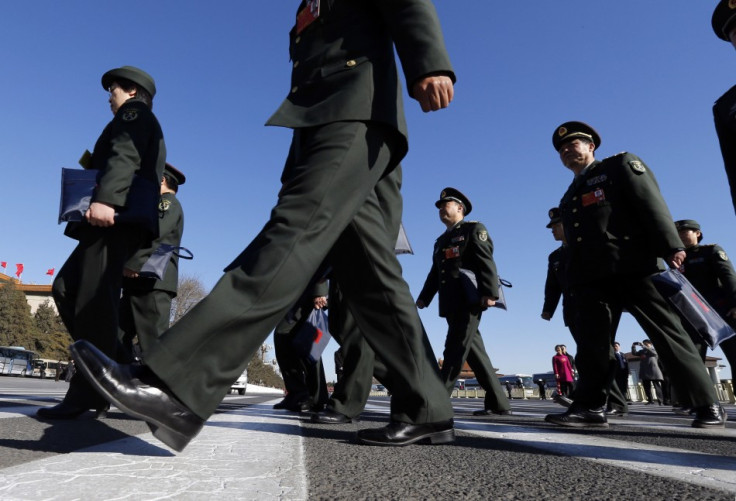China Hikes Defence Spending by 10.7% in 2013 [VIDEO]
2013 spending hike down from 11.2 percent rise in 2012

China has announced 10.7 percent increase in defence budget for 2013 in line with its double-digit hikes in military spending over the past two decades.
The second-biggest economy in the world, which is also the second-largest military spender after the US will increase its defence spending to 720.2bn yuan ($116bn, £77bn), according to the government's draft budget submitted to the National People's Congress (NPC).
China has been increasing its defence budget by double digits over the past two decades. In 2012, it hiked defence spending by 11.2 percent to 650.6bn yuan.
China will also increase its domestic security budget by 8.7 percent to 769.1bn yuan.
However, the spending growth rate has slowed down from the previous year as it looks for ways to boost the economy considering the weak pace of growth witnessed recently.
The Chinese economy grew 7.8 percent in 2012, the worst in 13 years. Outgoing premier Wen Jiabao projected the economy to grow by 7.5 percent in 2013 and has set the inflation target of 3.5 percent for the year. He also promised to create nine million new jobs to keep the urban unemployment below 4.6 percent.
"We should accelerate the modernisation of national defence and the armed forces so as to strengthen China's defence and military capabilities," Wen would say in his opening remarks of the annual meeting of parliament, according to an advance text of his speech.
"We should resolutely uphold China's sovereignty, security and territorial integrity and ensure its peaceful development".
The government has also lowered its consumer price inflation target to 3.5 percent from the previous year's rate of 4 percent as part of an attempt to maintain proactive fiscal policy and prudent monetary policy this year.
Nevertheless, China's ever-growing defence budget has remained a cause of concern for its Asian neighbours including Japan, India, the Philippines, Taiwan and Vietnam.
Japan and China were involved in a political row over the East China Sea islands, while Vietnam and the Philippines have challenged Beijing's claims to the oil-rich swathes of the South China Sea.
© Copyright IBTimes 2025. All rights reserved.





















